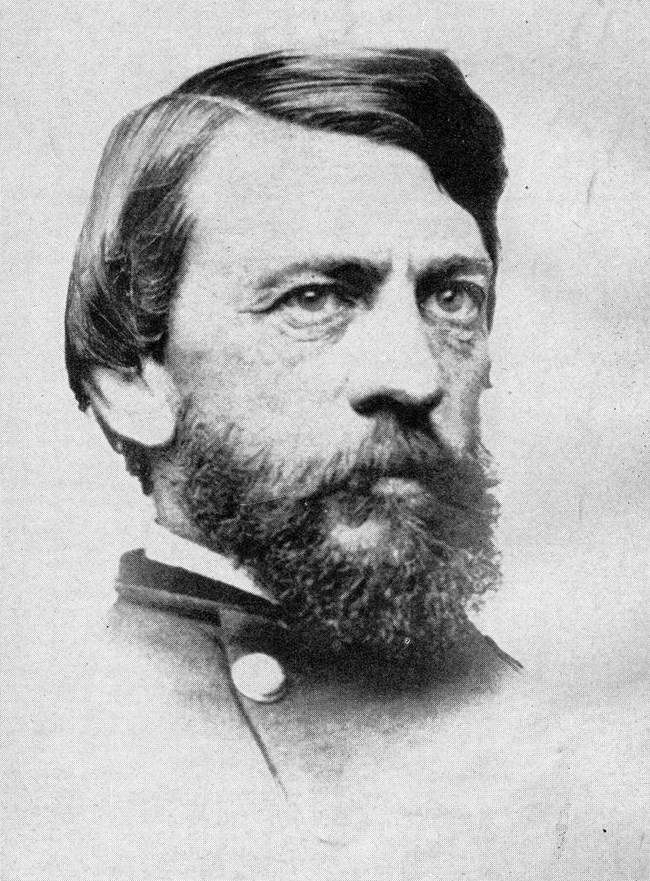Last updated: July 28, 2025
Article
Jonathan Letterman

U.S. Army Medical Museum
Jonathan Letterman was born in Canonsburg, Pennsylvania in 1824. The son of a surgeon, Letterman graduated from Jefferson Medical College in 1849. He became an assistant surgeon in the Army Medical Department. Prior to the Civil War, he served on military campaigns against Native Americans. When the Civil War began, he was assigned to the Army of the Potomac. In June 1862, Letterman was promoted to major and appointed Medical Director of the Army.
After the Second Battle of Manassas in August of 1862, it was clear that major improvements needed to be made to the U.S. Army’s medical system. Letterman initiated reforms. He started the Ambulance Corps, in which specific soldiers would be tasked with transporting wounded soldiers from the field, and he developed a system of triage for prioritizing patient treatment. His evacuation system created three clear stations for wounded soldiers to be moved through: field dressing stations, field hospitals, and permanent hospitals. Letterman’s system was put to the test for the first time at the Battles of Antietam and Fredericksburg in September and December 1862.
Letterman’s system proved successful in Fredericksburg. According to Letterman, he directed the ambulances to cross into Fredericksburg over the pontoon bridge at the southern end of town, where they then traveled along Sophia Street, picked up wounded soldiers brought from the town’s various hospitals, and were then taken over the pontoon bridges below Chatham. From there, wounded soldiers were carried to hospitals in Falmouth for treatment. Thousands of wounded soldiers were evacuated and treated in a timely manner. From Fredericksburg, recovering patients were moved to larger hospitals in Washington, D.C.
Major Letterman’s system was officially adopted in March 1864. He continued to work for the U.S. Army until his resignation that December. Following the death of his wife in 1872, Letterman struggled with depression and illness. He died that year and was buried in Arlington National Cemetery. Today, Jonathan Letterman is known as the “Father of Modern Battlefield Medicine.”
